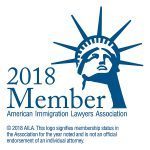.
E-1 VISA, E-2 VISA AND E-3 VISA
TREATY TRADERS, INVESTORS AND SPECIALTY OCCUPATION WORKERS
The E-1 Visa for Treaty Traders is for those citizens of an eligible treaty country who already pursue a substantial trade in goods principally between the U.S. and a country where they are citizens. Similarly, the E-2 Visa for Treaty Investors also is for citizens of an eligible Treaty Country, but who want to establish new businesses, acquire existing businesses, buy a franchise, conduct business or make investments. Thirdly, the E-3 Visa for Australian Specialty Occupation Workers is for those citizens of Australia seeking to perform services in a specialty occupation in the U.S. The E-1 visa and E-2 visa are the most popular of the E Visas.
E visas are anchored to a particular treaty between a country and the U.S. Such treaties with the United States allow for non-immigrant entries, among other things. They are intended to open up trade and investment between two countries in a way that will protect both countries’ investments and trade. E visa holders may enter the U.S. with their visa and remain in the U.S. for periods of 2 to five years. E-1 visa and E-2 visa
Overall, when considering possible pathways for non-immigrant visa status, the E Treaty Visas have become one of the most attractive and useful options to choose. These visas are not direct pathways to a Green Card, but under the right circumstances the E-2 Visa eventually could be an indirect way. E-1 visa and E-2 visa
WHO, WHAT, AND HOW
RMBII partners closely with entrepreneurs, business owners and managers, start-ups, traders and investors to each their business immigration goals. In doing so, we are better able to provide them the best pathways to getting an E visa. We take the same client-centered approach with F-1 Student Graduates looking to start a company or for alternatives to the H-1B visa, and denied H-1B applicants and Non-renewed/Non-Extended H1-B visa holders.
This visa category is useful if you want indefinite U.S. entry and presence for extended periods of time to oversee an enterprise that represents a major investment. The E Visas are versatile because they can allow certain person of your nationality also to obtain an E visa. That is what we call a “Coat-Tail Visa”. In addition, compared to the EB-5 visa, the E-2 visa requires a considerably lower investment amount, and allows more flexible qualifying investment funding sources.
RMBII advises on all aspects of the E visas, including eligibility, the application process, completing forms, funding, and compiling the required documents. Given Robert’s corporate and business law background, we can also assist clients with those aspect of our their E Visa applications. We can ourselves incorporate your business for you or advise on its structure. Otherwise, if a client needs, we can also refer them to other business incorporation and contract professionals. RMBII can refer you to, or work with your selected business plan writers, business brokers, or other business professionals as needed in support of your E Visa application.
CONTACT US FOR ADVICE AND SUPPORT on taking the next step to realising your US business immigration goals.
Treaty Investors (E-2)
With an E-2 Treaty Investors Visa the holder may enter the US in order to direct and develop a commercial enterprise or business in which they have invested or are in the process of investing, a substantial amount of money or capital. A Treaty Investor Visa holder must direct the operations of an enterprise in which they have invested, or has actively invested and put at risk a “substantial amount of money”.
That amount can vary depending on the type of business, but arguably can qualify with as little as $40,000 – $50,000 investment plus enough operating funds. Although, an amount of $100,000 is considered to be the reasonable benchmark amount. The E-2 visa applicant can be the investor, or a key employee. Key employees include an executive, a supervisor or a highly specialised skilled individual whose services are essential to the efficient operation of the U.S. business. However, the key employee must have the same nationality as the E-2 employer to qualify for an E-2 status.
Qualifications:
- The applicant must be a citizen of an eligible treaty country;
- The investor must have at least 50% ownership of the U.S. company;
- The funds invested must be “put at risk” and in an actual on-going business to be considered a qualifying investment (not passive or speculative investments). However, an investor can invest in a start-up company or purchase a qualifying existing business;
- The investor must have control of the funds invested in the U.S. enterprise;
- The amount of funds invested must be substantial. The immigration agencies consider a substantial amount to be that what is necessary to establish a viable enterprise based on the nature of the activity – by using a proportionality test to weigh the investment against the total value of the business or the usual amount needed for successful similar businesses and to determine whether a substantial investment has been made. Small- and medium-sized businesses should generally plan to invest at least half of the value of the business or the usual amount required to start up similar businesses. Although the amount can vary depending on the type of business, but arguably an investment can be pursued with as little as $40,000 – $50,000 investment plus enough operating funds; and
- The business cannot be marginal, it must be able to generate income more than the minimum necessary for the investor and his/her family to live, or to have a significant economic impact in the U.S. by creating job opportunities.
Before entering the U.S., Treaty Traders or Investors must apply for and receive an E-1 or E-2 visa from a U.S. Consulate or Embassy overseas. However, a U.S. company may also request a change of status to E-1 or E-2 for a non-immigrant that is already in the U.S. The USCIS, not the Department of State, processes any change of status or extensions of stay requests for non-immigrants whose companies have filed such petitions.
Treaty Traders (E-1)
Treaty traders pursue substantial trade in goods, including but not limited to services and technology, principally between the U.S. and the foreign country of which they are citizens or nationals. Trade includes the sale, exchange or purchase or goods or services. It also includes the transfer of technology and contracts that are binding and call for the immediate exchange of items of trade. In addition, can also include transportation, international banking transactions, insurance, tourism, technology transfer, and certain news-gathering undertakings. The Treaty Trader applicant can be a trader or a key employee including a supervisor, an executive or a highly specialised skilled individual whose services are essential to the efficient operation of the U.S. trading company. A key E-1 employee must have the same nationality as the E-1 employer to qualify for an E-1 status. There are no numerical limitations on the numbers of E-1 Visas issued each year.
Qualifications:
- The applicant must be a citizen of an eligible treaty country;
- The E-1 category requires there be substantial trade between the U.S. and the treaty country;;
- The trade activity must be substantial (at least 50% between the U.S. and treaty country), sizeable and continuous;
- The items of the trade (products, services, etc.) must already exist; and
- The U.S. trading entity must be owned in majority (at least 50%) by nationals of applicant’s treaty country.
Australian Specialty Occupation Worker (E-3)
Australian Specialty Occupation Workers are those who perform services in a specialty occupation. Before entering the U.S., Australian Specialty Occupation Workers must apply for and receive an E-3 visa from a U.S. Consulate or Embassy overseas. However, a U.S. company may also request a change of status to E-3 for a non-immigrant who is already in the U.S. USCIS processes change of status and extension of stay requests for non-immigrants whose companies have filed such petitions.
A specialty occupation is one which requires a theoretical and practical application of a body of specialised knowledge; and the attainment of the equivalent of a U.S. bachelor’s or higher degree in the specific specialty as a minimum for entry into the occupation in the U.S. For those who do not have the equivalent of a U.S. bachelors degree, they will require a great deal of work experience to overcome this requirement (12 years or greater if no degree at all). For those who have an Associates degree, or have not fully completed their Bachelors degree, a combination of work experience and the courses you have taken will be required to overcome this requirement.
Additional Information
- Duration of stay in the U.S. : depends on your country of citizenship (click to view Reciprocity Schedule for durations). However, typically E visa holders allowed multiple entry for a maximum period of five (5) years and with the possibility to extend for additional five-year increments/ periods
- Must be continuously engaged in the underlying business activity of the visa, and any notable change in the character, structure or nature of such business may require the visa holder to file a new application
- Regardless of their nationality, Spouse and/or children (under 21 years old) of the principle E visa holder are also entitled to E visa status for the same duration as the principal
- Spouse is eligible for a work authorisation but not unmarried children under 21 years old
- Unmarried children under 21 years old may attend school on E status





